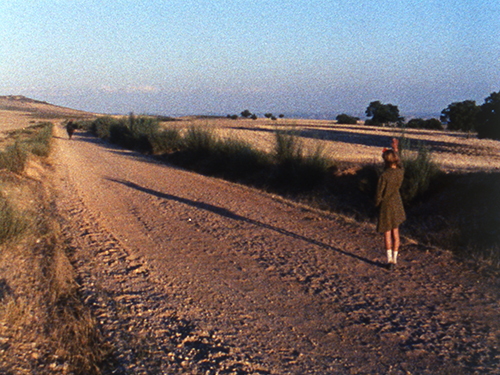
The first feature in António Reis and Margarida Cordeiro’s trilogy is a journey through this almost mythical region of north-east Portugal, a tapestry of micronarratives where past, present and future become intertwined. Developed with a limited budget during the filmmakers’ holidays and free time, Trás-os-Montes was initially intended to portray different aspects of this culturally and geographically unique region – from flora to local crafts and architecture. However, the film turned into something entirely original, complicating straightforward definitions of documentary and ethnography. Rather than attempting to crystallise the region’s objects and practices, the directors reinvent its sounds and images, inaugurating a new chapter in Portuguese docufiction. (ICA)
EN
“For me, this film reveals a new cinematographic language. As far as I know, a director has never committed, with such obstinacy, to the cinematographic representation of a region: that is to say, to the difficult communion between men, landscapes, and the seasons. Only a foolish poet could produce such a disquieting object.”
Jean Rouch1
“I can tell you that we never shot with a peasant, a child or an old person, without having first become his pal or his friend. This seemed to us an essential point, in order to be able to work and so that there weren’t problems with the machines. When we began shooting with them, the camera was already a kind of little pet, like a toy or a cooking utensil, that didn’t scare them. So using their lights in their homes or setting up reflectors in the fields to have indirect light wasn’t a problem. It was a sort of game at the same time. So it was possible to insist on certain things, most often with tenderness. And if we were having a problem, they understood very well. A very important thing: they were able to confirm from our work that we were also ‘peasants of the cinema’, because it sometimes happened that we were working sixteen, eighteen hours a day, and I think that they liked seeing us working. And when we needed them to continue working with us, even while leaving the animals without food or the children without care, they didn’t feel, I think, it was a constraint. It was admirable to see this."
António Reis2
- 1Jean Rouch in: ”Disquieting Objects. The radical austerity of António Reis and Margarida Cordeiro”
- 2António Reis, interview by Serge Daney and Jean-Pierre Oudart, Cahiers du Cinéma, nr. 276 (1977). [Translated by Kelsey Brain, Ted Fendt and Bill Krohn]
NL
“Verwijdering is het onderwerp van de film die António Reis en Margarida Cordeiro hebben gemaakt in de streek van Trás-os-Montes (waaraan de film zijn titel ontleent) in 1976. In de dubbele betekenis van het ver zijn (ballingschap) en de daad zelf van het (zich) verwijderen (uit het zicht, vervolgens de vergetelheid in). Verwijdering, zeggen Reis en Cordeiro ons beetje bij beetje, is de geschiedenis van het noordoosten van Portugal. Het is de verre heerschappij, onbegrijpelijk en zonder inlevingsvermogen, van de Hoofdstad (Lissabon) over Trás-os-Montes. Zozeer dat de Wetten, uitgevaardigd door de Hoofdstad, de boeren niet bereiken en dat deze zich de vraag stellen: bestaan ze eigenlijk wel?”
Serge Daney1
- 1Serge Daney, “Ver van de Wetten (Trás-os-Montes),” vertaald door Elias Grootaers en Veva Leye, Sabzian, 18 mei 2016. De tekst verscheen origineel in Cahiers du Cinéma n° 276, mei 1977.

